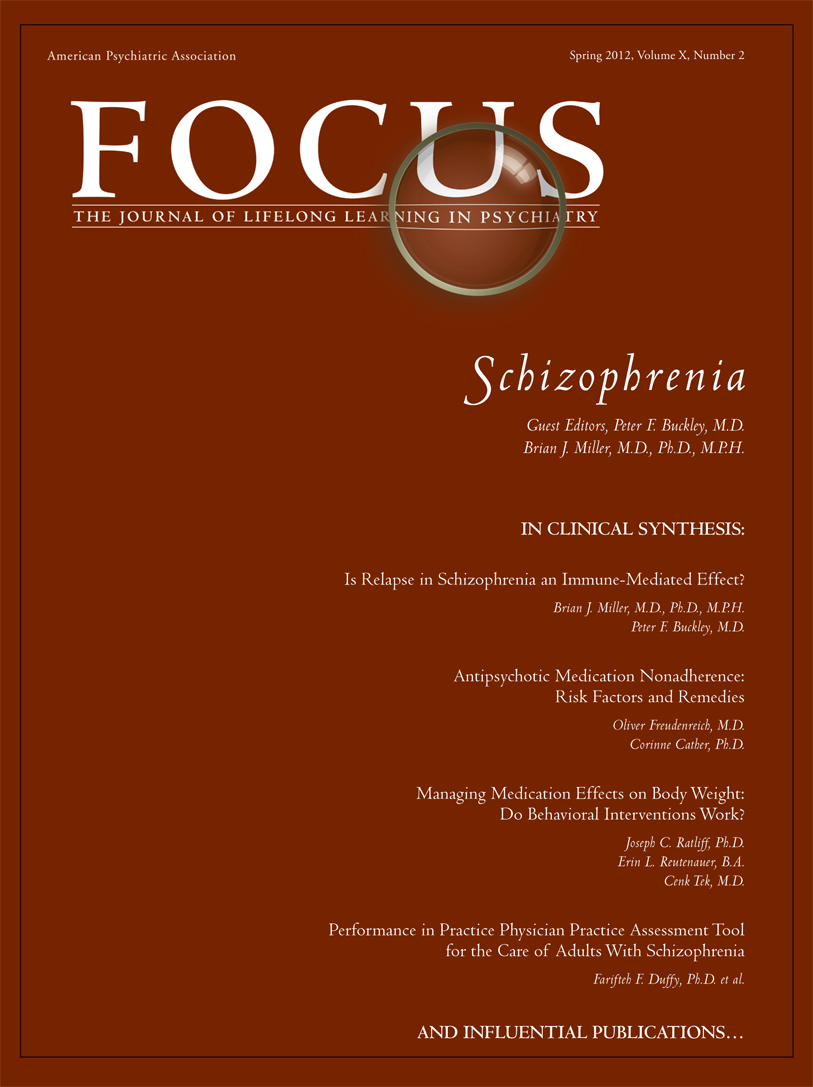Antipsychotic Medication Nonadherence: Risk Factors and Remedies
Abstract
Antipsychotic Nonadherence
Risk Factors for Non-Adherence
Negative drug attitude
Lack of insight
Remedies for Nonadherence
| Risk Factora | Interventionb |
|---|---|
| For intended nonadherence | |
| Poor therapeutic alliance | Optimize overall care experience |
| Minimize perceived coercion | |
| Negative drug attitude | Persist in trying to achieve good efficacy |
| Increase “subjective well-being under neuroleptics” | |
| Poor insightc | Consider long-acting injectable (LAI) antipsychotic |
| Consider directly observed therapy (DOT) | |
| Incentivize taking antipsychotics (e.g. financial) | |
| Use motivational principles (e.g. Compliance Therapy) | |
| For unintended nonadherence | |
| Cognitive difficulties | Consider Cognitive Adaptation Training (CAT) |
| Consider long-acting injectable (LAI) antipsychotic | |
| Consider directly observed therapy (DOT) |
Improving the therapeutic alliance
Improving attitude toward treatment
Improving insight
Compliance therapy
Long-acting injectable antipsychotics (LAIs)
Cognitive adaptation training (CAT)
Directly observed therapy
Financial incentives
Note
References
Information & Authors
Information
Published In
History
Authors
Funding Information
Metrics & Citations
Metrics
Citations
Export Citations
If you have the appropriate software installed, you can download article citation data to the citation manager of your choice. Simply select your manager software from the list below and click Download.
For more information or tips please see 'Downloading to a citation manager' in the Help menu.
View Options
View options
PDF/EPUB
View PDF/EPUBGet Access
Login options
Already a subscriber? Access your subscription through your login credentials or your institution for full access to this article.
Personal login Institutional Login Open Athens loginNot a subscriber?
PsychiatryOnline subscription options offer access to the DSM-5-TR® library, books, journals, CME, and patient resources. This all-in-one virtual library provides psychiatrists and mental health professionals with key resources for diagnosis, treatment, research, and professional development.
Need more help? PsychiatryOnline Customer Service may be reached by emailing [email protected] or by calling 800-368-5777 (in the U.S.) or 703-907-7322 (outside the U.S.).

